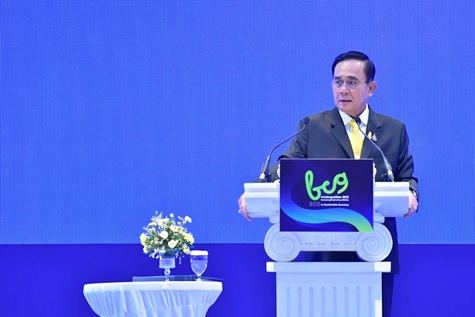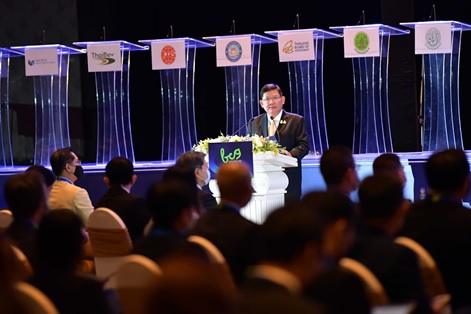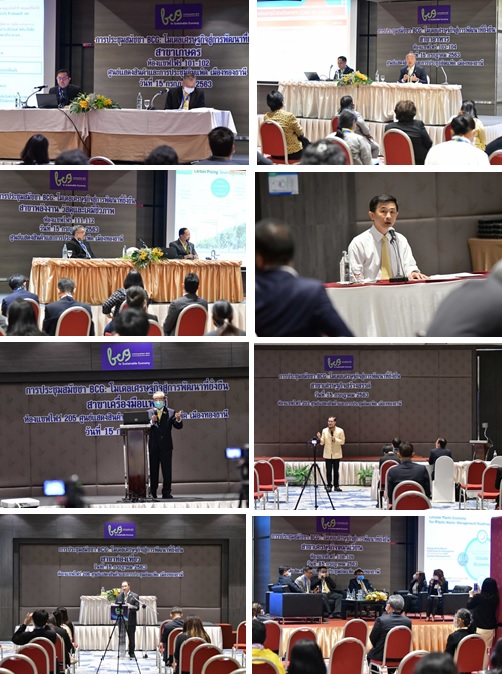On 15 July 2020, Ministry of Higher Education, Science, Research and Innovation (MHESI) hosted a “BCG: An Economic Model for Sustainable Development” Assembly to demonstrate the potential of Bio-Circular-Green Economic Model (BCG) in leading Thailand towards the path of sustainable development and engage all stakeholders to set direction and requirements for the country to achieve BCG’s goal. Such requirements include the revision of laws and regulations in order to foster innovation and application, infrastructure investment, market access expansion, financial tools, and mechanisms for knowledge and technology transfer to all sectors.
The forum was presided over by Prime Minister General Prayut Chan-o-cha, along with MHESI Minister Dr. Suvit Maesincee, and attended by 1,300 participants onsite and online, representing government agencies, businesses, industries, academia, and local communities.

The Thai government introduced BCG as a new economic model to enable inclusive and sustainable growth. The targets set by the government to achieve within 5- years include 1) BCG’s combined economic value increases from 3.4 trillion THB (pre-COVID) to 4.4 trillion THB, 2) BCG’s employment grows from 16.5 million to 20 million, 3) The country can attain inclusiveness, fair income distribution, equal access to healthcare service, and reductions in resource consumption, pollution, disease outbreak and effects caused by climate change.
BCG implementation has been in progress thanks to a number of initiatives launched by MHESI. A total of 42,000 jobs were created in the first two phases. MHESI is planning to add 300,000 new jobs for newly graduates and current unemployed workers affected by COVID-19 under a community development campaign. This campaign represents a main strategy for targeted poverty alleviation by putting local universities to work with communities to employ research and innovation to revitalize and reinvent local economy. For instance, smart farming technology will be introduced to farmers to improve farm product’s quality and productivity, or digital platform to support tourism and creative industry and increase market access of local products and services. Development of eco-tourism and new tourist destinations can also revitalize local economy. Boosting the grassroots economy is a strategy to create jobs and facilitate income distribution at the community level, leading to inclusiveness in the society.


A cooperative agreement among 18 organizations - representing government agencies, industries and financial institutions - was signed at the forum to support BCG initiatives. The agreement covers a 10-billion THB investment contributed by the private sector, which will generate a 40 billion THB economic impact and benefit more than 50,000 people.
Also held at the forum were discussions of focus groups of BCG. Eight focus groups are agriculture; food; bioenergy, biomaterials and biochemicals; drug and vaccine; medical device; tourism; circular economy; and creative economy.

